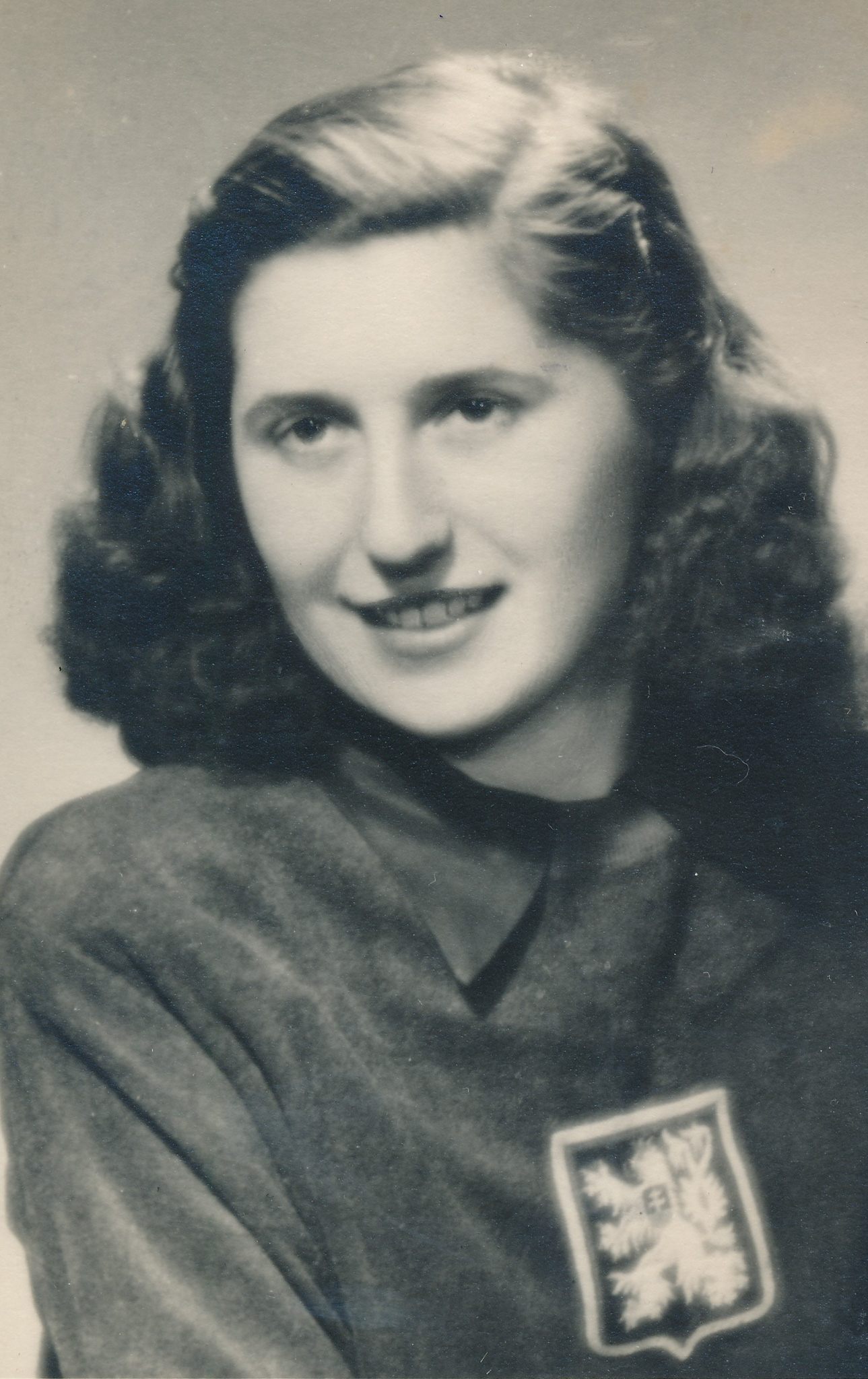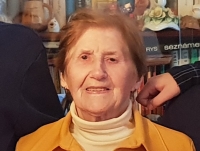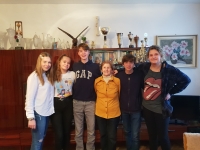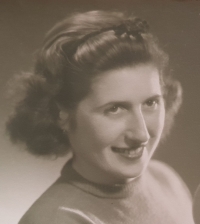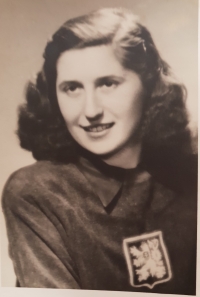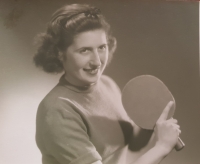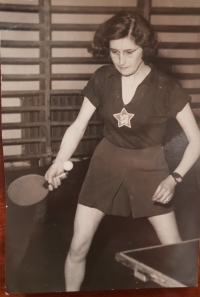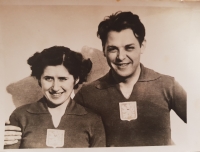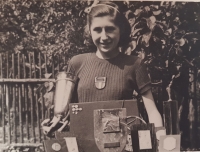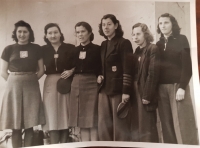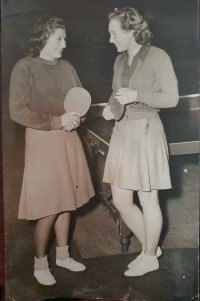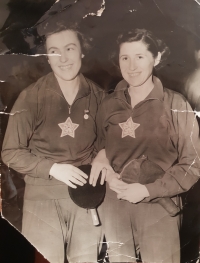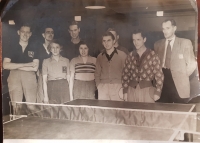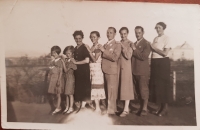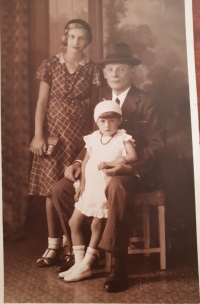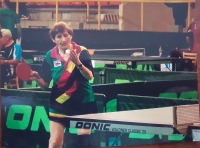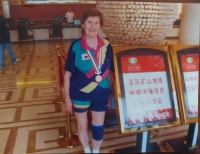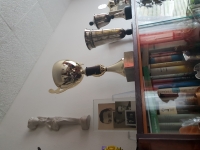„První mistrovství světa hned po té svatbě, můj muž nechtěl, abych to hrála. Nakonec kývnul, zrovna tak jako já jsem kývla na to manželství, tak jako aby mě dostal. Tak mi říkal, že mi ty poháry bude čistit a že mi to jako dovolí, no. No jenomže to je povídání, a pak mě pořád zrazoval a nechtěl, abych nikam jezdila. Jenomže to byl můj život a já jsem přesto, a jak jsem ze začátku stoupala rychle nahoru, všechny jsem tady porážela a byla jsem tu těch deset let první, tak mě dali do reprezentace. Takže když bylo mistrovství světa v Paříži, to bylo ve čtyřicátém sedmém roce, tak jsem ještě neměla to oko tak zajizvené a ještě jsem na něj viděla, tak bylo takové soustředění v některých horách, já nevím, Jizerské nebo Orlické hory to byly, soustředění, asi čtrnáct dní, a měli jsme lékaře, který nás prohlížel, jako to bývá. Dneska je to běžné, ale tenkrát to bylo v začátcích. No a on, ten pan doktor, jim řekl, že jako nemůžu hrát ping-pong, protože mám špatné jedno oko a to že na stolní tenis jako není dobré, protože je potřeba dobrý zrak. Tak oni ho umluvili, vedoucí říkali: ‚No to je naše první hráčka, to nemůžeme bez ní, prostě to je potom špatné, tak aspoň nějak to udělejte.‘ Tak oni mně dělali nějaké cylindricky zabroušené brýle, oko, teda sklo. Trošičku lepší, je pravda, že jsem viděla. A tak mě jako pustili, že můžu hrát.“
